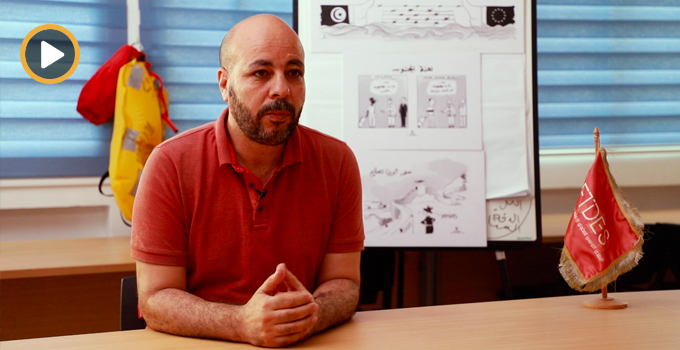
Seven years after the adoption of Tunisia’s January 2014 Constitution, some of the text’s provisions have yet to take effect, notably those concerning constitutional institutions.
The elaboration of Tunisia’s new Constitution took place in a post-revolutionary context, to the end of delegating certain powers associated with the executive branch to other structures. The objective was to conceive a balance between the State’s classic institutions and the new structures set up by the Constitution, most importantly independent constitutional authorities, the Constitutional Court and the High Council of Local Collectivities.
The Constitutional Court should have been set up in 2015, one year after the Constitution’s adoption, according to the text’s final provisions. It appears, however, that the will to see this authority emerge was absent. The Court is to be composed of twelve members « of which three fourths are specialists in law with at least 20 years of experience », according to Article 118 of the Constitution. They must be designated respectively by parliament and with an enhanced majority (a total of 145 deputies), the Superior Council of the Magistrature (CSM) and the president.
The Constitutional Court is tasked with monitoring the constitutionality of laws submitted by courts, draft laws voted in parliament, and the rules of procedure for the Assembly of the Representatives of the People (ARP), among other things. It is also responsible for adjudicating in jurisdictional conflicts between the president and prime minister. This issue came up in 2019 after former President Beji Caid Essebsi’s health deteriorated. The only body qualified to certify the vacancy of the office of president is the Constitutional Court. The same problem has now resurfaced with the government’s ministerial reshuffle in which new ministers are to be sworn-in by the president. Is the protocol in question a simple formality, or essential for ministers to be able to perform their duties? The Constitutional Court would have responded to this question.
In addition to the Constitutional Court, the Constitution designates five independent authorities. Today, however, the only one effectively carrying out its work is the Independent High Authority for Elections (ISIE).
Setting up these authorities takes place in two phases. The first is a legislative process involving a vote on the laws that govern these bodies. The ARP adopted three laws concerning the Authority for Good Governance and the Fight Against Corruption, the Human Rights Authority and the Authority for Sustainable Development and the Rights of Future Generations. The draft law concerning the audiovisual authority has yet to be examined by a parliamentary commission, while the electoral process relating to these bodies has not been completed.
Other institutions prescribed by the Constitution, including the Council of Local Collectivities, have also not been set up. According to Article 141 of the Constitution, « The High Council of Local Collectivities examines questions relative to development and parity between regions, and offers its opinion on draft laws relative to planning, budget and local finances ». The council is composed of a president of the common court for each region, the presidents of municipal councils from the four most populous municipalities, the presidents of municipal councils from the four municipalities displaying the poorest development indices, and regional and district presidents.
Aside from these institutions, certain laws should be promulgated in accordance with constitutional provisions, and others should be abrogated. The state of emergency, for instance, is still governed by presidential decree of January 26, 1978 which a number of civil society and political actors refuse to accept owing to the measure’s repressive nature. In this context, article 80 of the Constitution refers to an « exceptional state », and prescribes certain measures « in case of imminent peril ».





iThere are no comments
Add yours